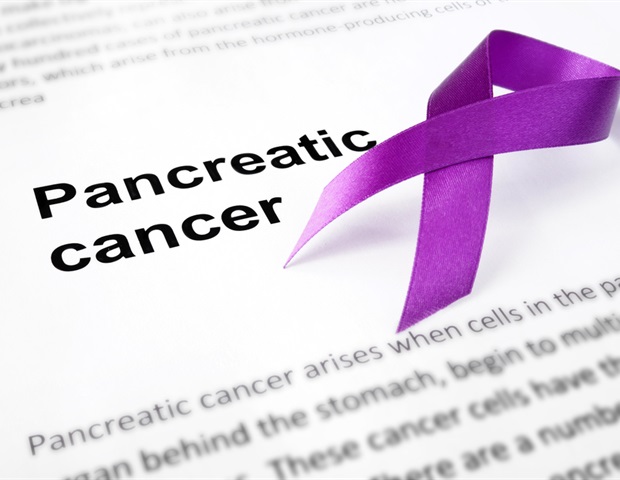
New research suggests a vaccine that blocks a digestive hormone may slow the spread of pancreatic cancer, potentially increasing survival rates. The study, published ahead of print in the American Journal of Physiology - Gastrointestinal and Liver Physiology, was chosen as an APSselect article for October.
Pancreatic cancer is difficult to treat, in part because it spreads to other areas of the body (metastasizes) quickly and frequently. An estimated 90 percent of people with pancreatic cancer have an advanced stage of disease at the time of diagnosis. The immune system plays a part in how pancreatic cancer grows and spreads. Pancreatic tumors are notoriously resistant to chemotherapy and immune therapies in part because of scar tissue (fibrosis) around the tumor and a lack of killing immune cells within the tumor.
Gastrin is a hormone that prompts the release of gastric acid in the stomach, which in turn helps the body digest and absorb nutrients from food. Previous studies suggest that gastrin also stimulates growth of pancreatic cancer and increases expression of certain proteins that then promote a process called epithelial mesenchymal transition (EMT). EMT-;which occurs when epithelial cells that cover the organs turn into stem cells and move to other parts of the body-;contributes to the development of metastases. In this new study, a research team from North Carolina and Washington, D.C., speculated that blocking gastrin may alter the environment of pancreatic cancer and preventing metastases.
The researchers exposed female mice to pancreatic cancer cells. One group was treated with a vaccine that blocked gastrin, and a second group was treated with an immune checkpoint antibody, called PD-1, a protein that causes cell death. A third group of mice received both the vaccine and the PD-1 antibody. All three treatment groups were compared with a control group that did not receive any treatment.
The research team measured tumor sizes weekly during the six-week trial and found a steady increase in tumor growth in the PD-1 antibody and control groups. In contrast, groups treated with the vaccine alone or the vaccine combined with PD-1 antibodies showed a decreased rate of tumor growth and a decrease in the number of metastases.
Neutralizing gastrin with the vaccine inhibited the development of metastases by interrupting EMT, the researchers explained. The combined therapy group also had less fibrosis in and around the tumors. This is relevant because fibrosis "has been shown to impede the penetration of chemotherapeutic agents and immunotherapy"-;standard forms of cancer treatment-;the researchers wrote.
"In conclusion, gastrin is an important driver of pancreatic cancer growth and metastases; therefore, strategies to interrupt or neutralize the actions of gastrin signaling … may improve survival of patients with pancreatic cancer," the researchers wrote.
American Physiological Society
Journal reference:
Osborne, N. et al. (2019) Vaccine Against Gastrin, Polyclonal Antibody Stimulator, Decreases Pancreatic Cancer Metastases. American Journal of Physiology—Gastrointestinal and Liver Physiology. doi.org/10.1152/ajpgi.00145.2019






No comments
Post a Comment